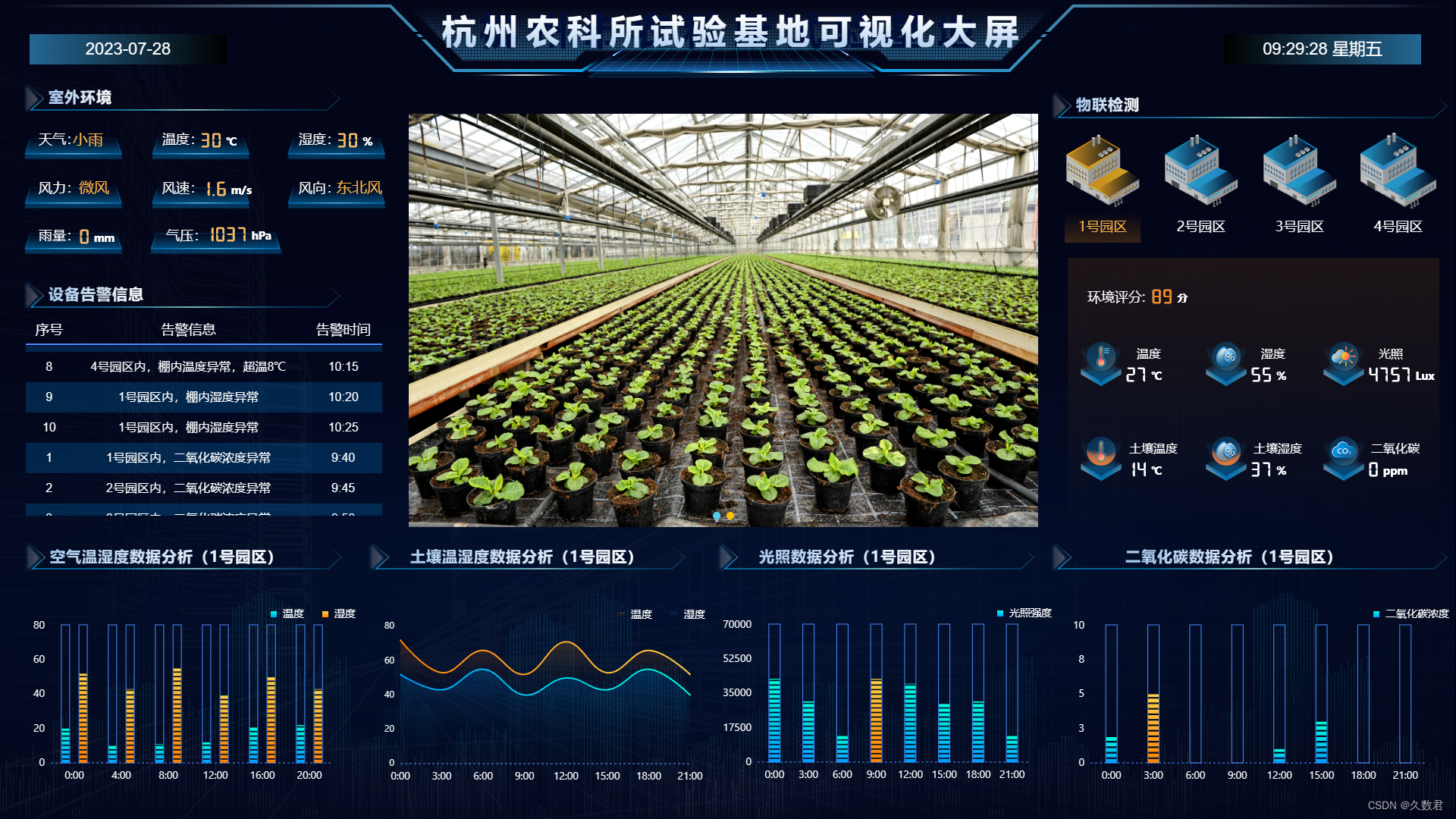The development prospect of smart agriculture is bright and colorful, and it is bringing new transformation and upgrading to agriculture. With the continuous development of science and technology, digital , automation and intelligent technologies have gradually penetrated into the agricultural field, providing farmers with more efficient and convenient agricultural management methods. Smart agriculture realizes real-time monitoring and analysis of key information such as farmland soil, climate, and water resources through advanced technologies such as the Internet of Things , big data , and artificial intelligence , so that farmers can scientifically and rationally formulate planting plans and farming activities to increase crop yields and quality. At the same time, smart agriculture also promotes the precision and greening of agricultural production , reduces the use of chemical fertilizers and pesticides, and protects the ecological environment.

The development of smart agriculture will not only be limited to rural areas, but will also be integrated into urban agriculture and modern agricultural systems. Through digital and intelligent means, urban agriculture and modern agriculture can better carry out precision planting , precision fertilization and precision irrigation , improve the quality and yield of crops, and meet people's demand for green food.
Smart agriculture will also promote the transformation and upgrading of rural areas and improve the level of rural economic development. Through digital technology and e-commerce platforms, the sales and distribution of agricultural products will become more efficient and convenient, and the income of farmers will also be improved. At the same time, the development of smart agriculture will also drive the development of related industries and create more employment opportunities.

However, the development of smart agriculture also faces some challenges and difficulties. First of all, the level of rural infrastructure and informatization needs to be improved, and technical support and investment in rural areas need to be increased. Secondly, the scientific and technological level and awareness of farmers need to be further improved in order to better use smart agricultural technology. In addition, the development of smart agriculture also needs the support and guidance of relevant policies to promote the popularization and application of smart agricultural technology in rural areas.
Generally speaking, as an important part of modern agriculture, smart agriculture will continue to grow and develop in the future, bringing new opportunities and challenges to agriculture. Only continuous innovation and development can realize the organic integration of smart agriculture and agricultural modernization, and create a better life and future for farmers.